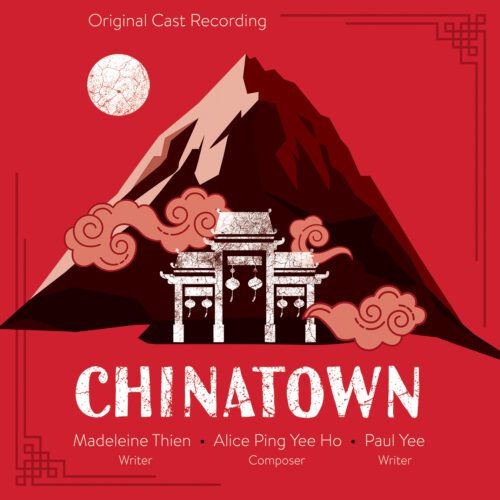Chinatown is a Canadian iconic cross-cultural opera, telling the story of two Chinese friends living in Vancouver’s Chinatown in the first half of the 20th century. Their journey through life is filled with obstacles such as discrimination and poverty. Reference is made to the Chinese Immigration Act of 1923, which prevented almost all Chinese immigration for 24 years in the country, a situation experienced terribly by one of the libretto’s two protagonists, trying to bring his family back from China. The opera is sung in English and in the Taishanese dialect, a language native to an area of Guangdong province where almost half the Chinese immigrants of the time came from. The libretto is by Vancouver-born author Madeleine Thien, winner of both the Giller Prize and the Governor General’s Award.
In this more than 90-minute opera about sadness, poverty and the cruel separation from one’s family, it is remarkable to hear a score that is never self-pitying, nor does it veer into ponderousness. On the contrary: the score by Alice Ping Yee Ho (a Canadian of Hong Kong origin) is luminous, often playful, often melodic and tonal, without restricting itself to this. There is, of course, a healthy aura of melancholy running through the work as a whole, but the lovely colours and sparkling sonic textures make for eminently enjoyable listening. The gentle modernity of the music is beautifully rendered by a colourful chamber ensemble of Western and traditional Chinese instruments. The guzheng, erhu and dizi sit alongside the piano, violin, cello, harp and oboe. Delicate percussion adds the idiosyncratic touches needed to recreate an evocative atmosphere.
The voices are very beautiful. I won’t venture to comment on the quality of the Taishanese pronunciation, which I would be incapable of doing. But I note that the particularities of an Asian language seem to have been mastered very well by the soloists Spencer Britten, Vania Chan, Erica Iris Huang, Derek Kwan, Matthew Li and Emma Parkinson. I’ve often wondered whether it was possible to capture the precise and original sound inflections of the Chinese language (or one of its dialects, as is the case here) in an operatic context. Clearly, it is. But it can’t be easy, so well done!
The chamber orchestra is complemented by a choir symbolizing the inhabitants of Chinatown, who have died over the years in more or less favourable circumstances. The use of archive footage of a speech made at the time (I couldn’t identify who it was by. Prime Minister of British Columbia? Canada? Someone else?). The racism oozing from the perpetrator’s words, if uttered today, is almost unimaginable. Only the most radical far-right activists on social networks could utter such words these days. That gives you an idea.
Chinatown is both an extremely moving, musically accessible and emotionally enlightening document of fictional memory and a beautifully crafted contemporary creation with undoubted broadcast potential. I’d love to see it presented here in Montreal, because the history of Montreal’s Chinese community is very similar, and there are even mentions of Montreal in some audio archives.
The Maritimes label Leaf is doing a very useful, pan-Canadian job with this recording.
























